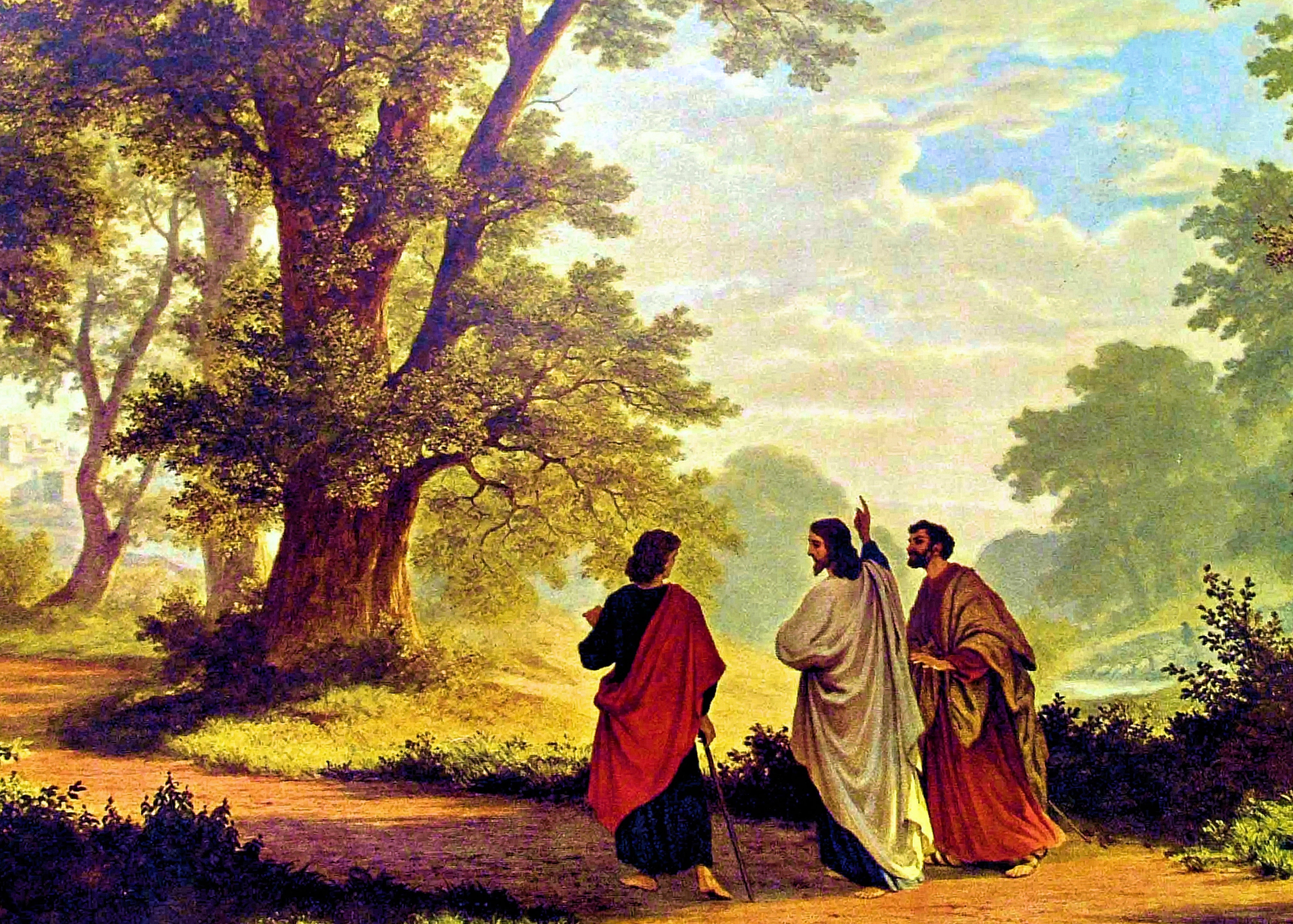The Lamb in today’s Second Reading, surrounded by everyone and everything falling down in worship before him, is the same person who makes breakfast for the disciples in today’s Gospel after a long night fishing. Do we let that sink in? You cannot pigeonhole Our Lord in once place and role or the other: if you try to either just place Our Lord in Heaven or on the shore cooking breakfast, you cannot understand what motivates him. He deserves our adoration, and woe to us if we don’t give it to them. At the same time, he wants our love. He doesn’t need our love, but he wants it.
In today’s First Reading the Apostles are happy to have suffered dishonor for the sake of Jesus, because they knew he was worthy of both their love and their adoration. The Sanhedrin were the religious authorities of Israel until Our Lord came and turned that all on its head. They had him executed, but the Lord rose from the dead to show they no longer had authority over him or anyone else in the eyes of God. They never believed in Our Lord, so when reports start coming in of what Peter and the other Apostles are preaching they filter it, out of a lack of faith, and see the Apostles as simply seeking to incriminate them for the injustice they’d done. They order the Apostles to no longer speak in Jesus’ name.
Peter’s response on behalf of the Apostles shows that they adore Jesus as Lord: “We must obey God rather than men.” After all they’ve lived and experienced, they are obliged to teach, preach, and act in Jesus’ name. Everyone knows that doing what you’re obliged to do does not always make you happy. The Apostles leave the Sanhedrin’s presence “rejoicing that they had been found worthy to suffer dishonor for the sake of the name.” That reaction does not come from obligation. It comes from love. The Lord loved them and suffered so much for them that they are happy to love and suffer for him in return, just as every believer should be.
In today’s Gospel Our Lord reminds us that he wants unconditional love from us, but also realizes our weakness and failings. It is not reflected in the English translations of this passage, but in the three times Jesus asks Peter “do you love me?”, the Greek original shows us Jesus is inviting Peter to profess the greatest love a man can have, and, gently, Peter responds that he is not up to that after everything that has happened between them. It passes from an invitation to ἀγαπάω (a deep and unconditional love) to φιλέω (a brotherly love or an openness to friendship). In the first invitation Jesus asks Peter if his love is deep and unconditional, and Peter responds that he has a brotherly love for Jesus. In the second invitation, Jesus asks Peter the same thing and Peter responds the same way: not a deep and unconditional love, but a brotherly love. Finally, in the third invitation, Jesus asks Peter whether his love for him is brotherly, and Peter, hurt that he keeps asking, responds in kind.
With this invitation Jesus has brought it down to Peter’s level and Peter has had an opportunity to really explore and state his level of love for Jesus after having said before the Passion that his love was until death and then denied Jesus three times (see Luke 22:33–34 and John 18:15–27). Jesus asks us for complete and unconditional love, but when we are weak, the love we can muster is enough, if it is from the heart. As Jesus extended the invitation to Peter, who knows whether he was asking him if Peter was still so confident that his love for Our Lord was total, but in the love Peter offered, he was firm. Our love will always be imperfect, but it must be firm, trying to grow and never losing ground.
God Almighty, Creator of Heaven and earth, created us out of love, but when we estranged ourselves from him he came to love us in Person. Even as believers we sometimes focus on loving those distant from us at the expense of those who are closest to us, whether at home, at work, or at school. Our familiarity with those closest to us sometimes makes it more of a challenge to love them than to love a total stranger. Make an extra effort this week to love those closest to you this week. Our Lord came down from Heaven to be close to us and love us in Person.
Readings: Acts 5:27–32, 40b–41; Psalm 30:2, 4–6, 11–13; Revelation 5:11–14; John 21:1–19. See also 3rd Sunday of Easter, Cycle C, 2nd Week of Easter, Thursday (2), 7th Week of Easter, Friday and Easter Friday.


